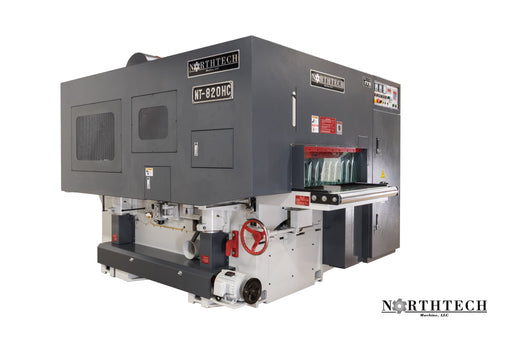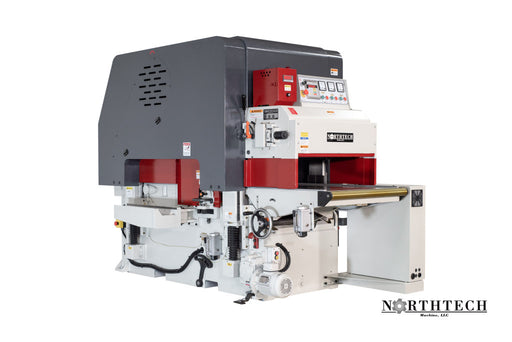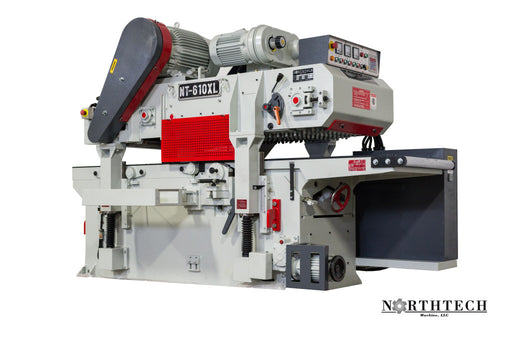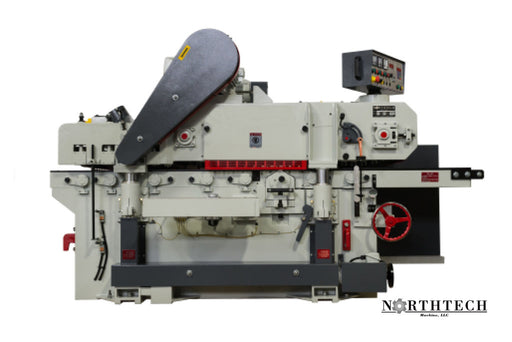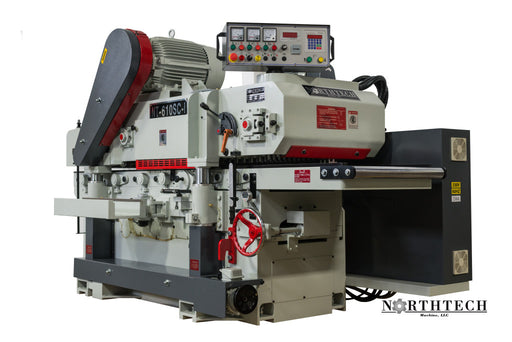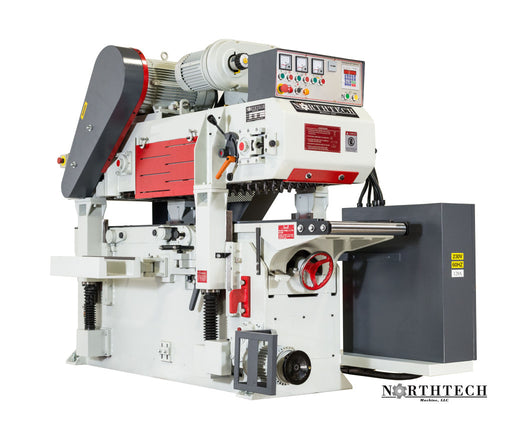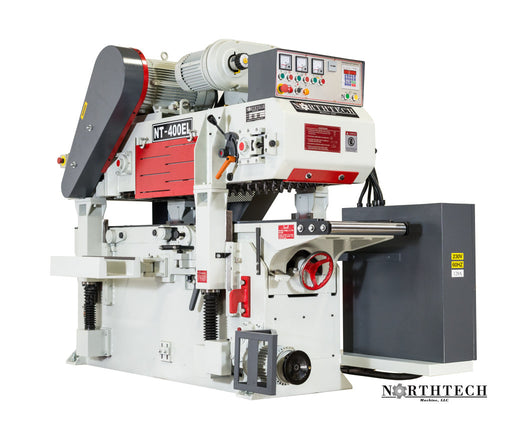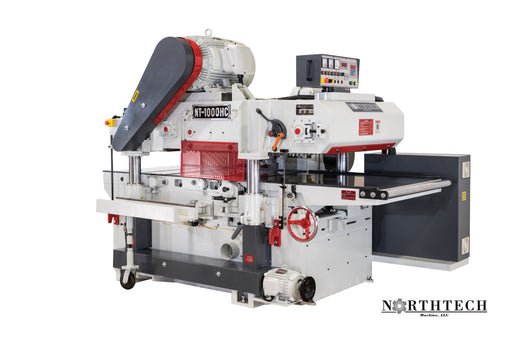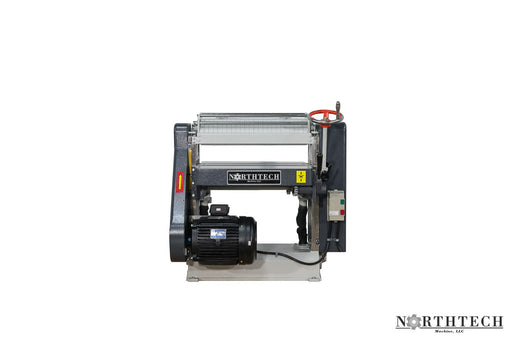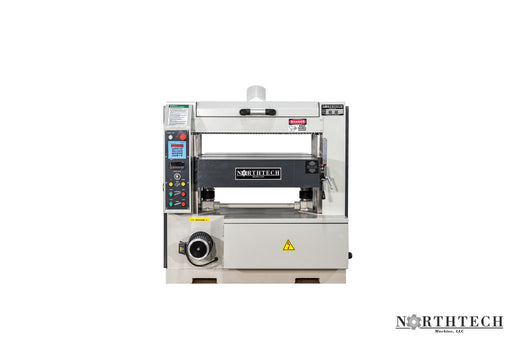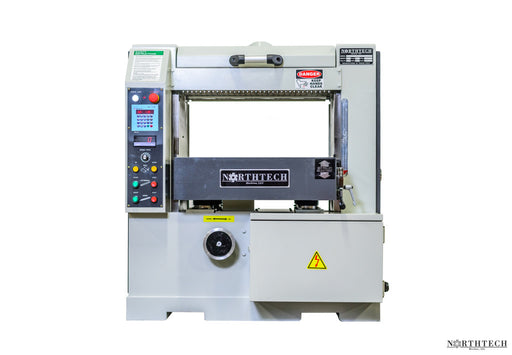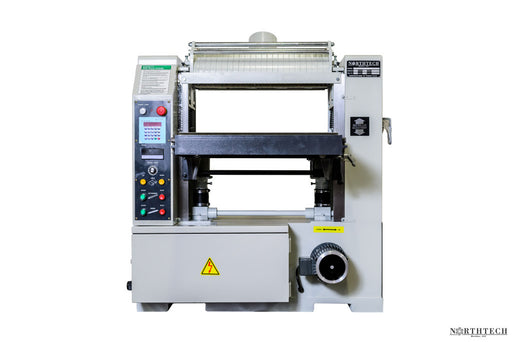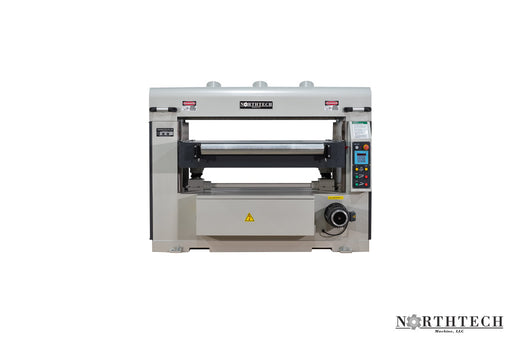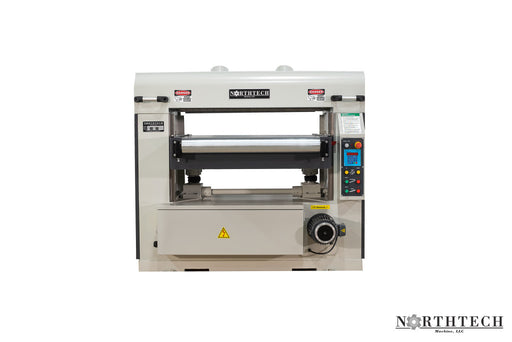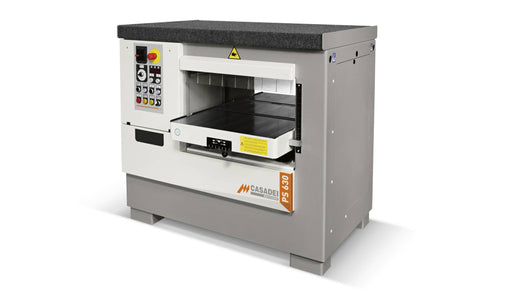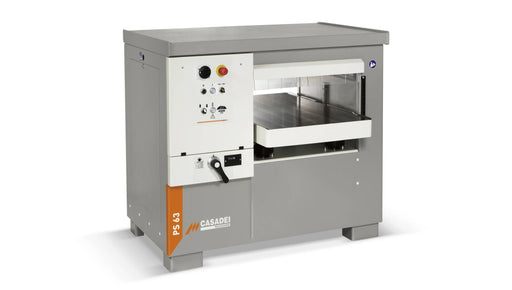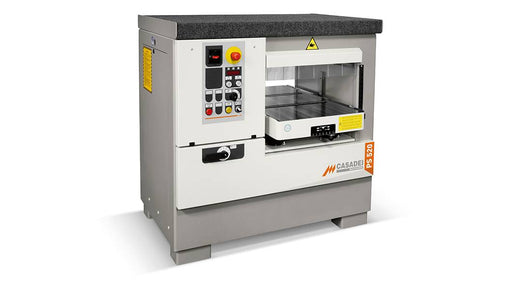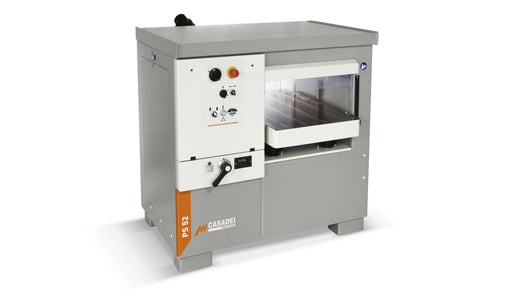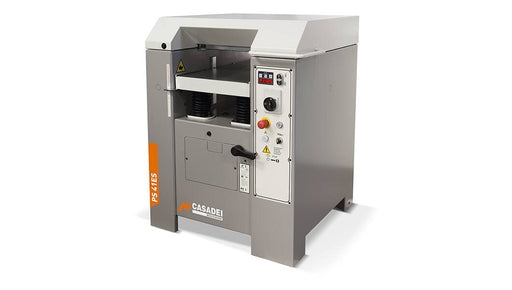A planer machine is a fundamental tool in industrial woodworking, designed to create precise and uniform thickness across the surface of wooden workpieces. It achieves this by removing excess material from the wood, ensuring it is flat, smooth, and of consistent thickness. Planers are indispensable for preparing rough lumber, leveling surfaces, and reducing thickness variations. They are widely used in applications such as creating flat boards for cabinetry, preparing stock for joinery, or smoothing rough-sawn timber. Planer machines come in various sizes, from small benchtop models to large industrial units, each catering to specific woodworking needs. With their ability to provide precise thicknessing, planer machines play a critical role in achieving high-quality woodwork.
Key Features of Planer Machines:
Planer machines offer several features to enhance their functionality:
- Adjustable Depth of Cut: These machines allow for fine-tuning the thickness of material to be removed.
- Feed Speed Control: Variable feed speed controls for adjusting to different wood types and thicknesses.
- Infeed and Outfeed Tables: Extended infeed and outfeed tables to support longer workpieces.
- Dust Collection: Effective dust collection systems to maintain a clean and safe workspace.
Applications of Planer Machines:
Planer machines find applications in various woodworking tasks, including:
- Stock Preparation: Preparing rough-sawn lumber by leveling and smoothing it for subsequent operations.
- Joinery: Creating uniform thickness for joinery, ensuring snug-fitting joints.
- Cabinetry: Producing flat and consistent boards for cabinets, panels, and furniture components.
Benefits of Using Planer Machines:
The advantages of incorporating planer machines into woodworking operations are substantial:
- Precision: Planer machines deliver precise and consistent thicknessing, ensuring uniform results.
- Efficiency: They expedite stock preparation, reducing manual labor and saving time.
- Quality Improvement: Planers enhance the quality and aesthetics of woodworking projects by providing even surfaces.
Choosing the Right Planer Machine:
Selecting the appropriate planer machine depends on specific project requirements:
- Cutting Width: Consider the width of the boards you typically work with and choose a planer machine that accommodates those dimensions.
- Feed Speed: Evaluate the feed speed range, as it affects the quality and finish of the workpiece.
- Adjustability: Look for models with precise depth of cut adjustments for versatility.
- Dust Collection: Machines with effective dust collection systems contribute to a cleaner and safer workspace.
In conclusion, planer machines are essential tools in industrial woodworking, specializing in providing precise and uniform thicknessing of wooden workpieces. Understanding their key features, applications, benefits, and considerations for selecting the right model is crucial for optimizing woodworking processes and achieving high-quality results. Planers are indispensable for stock preparation, joinery, and cabinetry, ensuring that wood is flat, smooth, and ready for further crafting and assembly.






